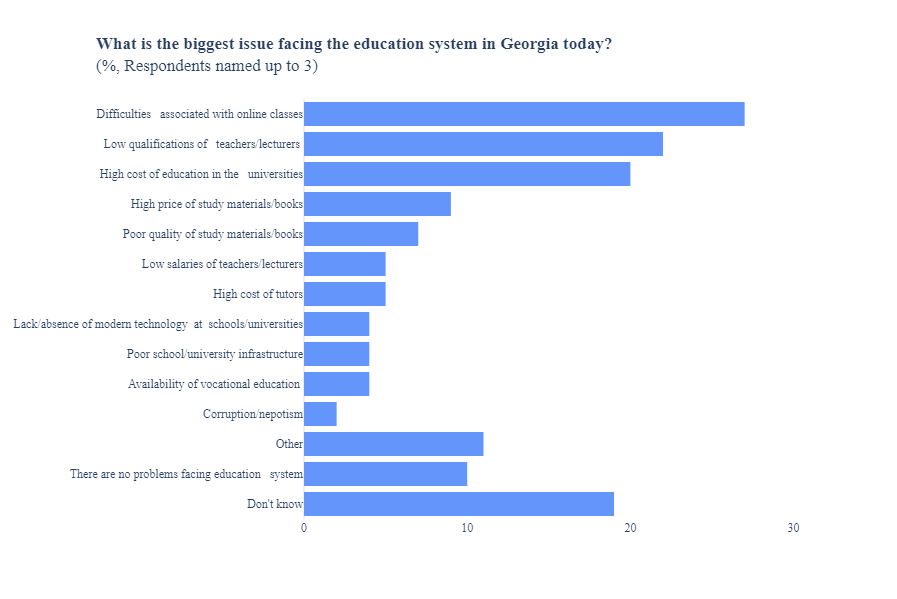Georgia has postponed the reopening of schools in major cities due to a new surge in the pandemic, but what are the biggest concerns Georgians have with the education system?
Georgia’s new academic year started on 15 September, but physical attendance at schools and universities in major cities has been postponed until 1 October.
Earlier this month government officials, including the Head of the National Center for Disease Control and Public Health Amiran Gamkrelidze, said schools were ready to reopen. But on 11 September the prime minister announced this would not be possible in large cities because of a record-breaking number of new coronavirus cases in the country.
In response, parents recently started a petition saying ‘no to online schooling’, to try and push forward the shift back to face-to-face schooling.
Students in public schools in large cities have not attended education institutions physically since March, when the first COVID-19 cases were confirmed in Georgia.
Through broadcasting live lessons for school children on the public broadcaster, distance learning became available for everyone who had access to a TV.
Data from the period indicated that most in Georgia could access either TV or other online learning options. But, UNICEF Georgia recommended prioritising school reopening because of the negative effects of school absence on children’s health.
In this context, what do people think are the main problems for the Georgian education system today?
The August 2020 CRRC/NDI survey asked respondents about issues that the education system is facing in Georgia. Respondents were able to name up to three answers and the most frequently mentioned issue was difficulties associated with online classes, which a quarter (27%) of respondents named.
The next most common issues were low qualifications of teachers/lecturers (22%) and the high cost of university education (20%).
One in ten (10%) of the population reported that there were no problems facing the education system and 19% answered ‘don’t know’.

Women were more likely to name a problem than men. A quarter of men (24%) did not know how to answer this question compared to 16% of women. Similarly, 12% of men report that there were no problems facing the education system in Georgia whereas only 8% of women reported the same.
Who is more concerned about online education?
A logistic regression suggests women were 15 percentage points more likely to report distance learning as an issue than men. Those living outside Tbilisi were eight percentage points more likely to report distance learning was an issue.
Other characteristics such as age, level of education, employment status, internet usage, and wealth do not predict whether people named difficulties with online classes as a problem or not.
These differences are perhaps unsurprising. Women are more involved in children’s upbringing and education in Georgia. Therefore, they probably have more information about issues surrounding the education system than men.
People living in other urban or rural settlements compared to residents of Tbilisi are less likely to be able to access the internet, which is necessary for online learning.
At present, it is still an open question whether schools and universities will reopen on 1 October. Another question is how the quality of education will be affected as a result of the lack of face to face interaction, and who this will affect the most.
What is clear is that a substantial share of the public is concerned about online education, even if they do have access to it.
The views presented in the article do not represent the views of CRRC Georgia or any related entity.









